The UW study calls the state’s fish and wildlife decision-makers “dysfunctional” and recommends major reforms

Where to now? After a critical report, Washington’s Fish and Wildlife Commission couild move forward in any number of directions. Photo: WDFW
By K.C. Mehaffey. January 2, 2025. Conservation groups and hunters and anglers in Washington want the same things for the state’s fish and wildlife populations: health, stability and abundance.
But anyone who’s attended a Washington Fish and Wildlife Commission meeting over the last few years wouldn’t know it.
The division between environmentalists and sportsmen—and the inability of the commission to deal with it—has become so intense that a University of Washington research center is calling for an overhaul of the commission, or even eliminating it altogether and replacing it with an agency overseen by the state’s governor.
After interviewing more than 100 people closely involved with the Washington Department of Fish and Wildlife (WDFW) and the Fish and Wildlife Commission, UW’s William D. Ruckelshaus Center released a report on the state of the agency on Dec. 19.
The report was prepared as a $300,000 budget proviso request from the Washington Legislature.
The report says WDFW’s current structure—particularly the commission—“has dysfunctional elements.”
It notes that many of those interviewed see the commission as being “dysfunctional, politically polarized and caught up in conflict.”
“If there is not sufficient political will or interest in making comprehensive, simultaneous reforms,” the report says, the commission should be eliminated and replaced by a cabinet agency with a governor-appointed WDFW director. (The commission is currently responsible for selecting WDFW directors.)
“If this change occurred, it would support the important work needed to build strong relationships among the state’s natural resource agencies and to establish specific mechanisms for those agencies to align and collaborate on natural resource management strategies and policies,” the report reads.
Kim Thorburn, who served as a WDFW commissioner for eight years, has already written an opinion piece endorsing the report’s preferred option to fix, rather than dissolve, the commission.
“I am a strong believer in the commission,” Thorburn told Columbia Insight. “It’s traditional. It was put in place by the people’s initiative in Washington State.”
Meanwhile, Claire Loebs Davis, founder and board president of Washington Wildlife First, says there are a lot of advantages to turning the commission into an advisory board and handing over its job to a state agency.
“I would recommend a direct cabinet as the best way to make the department accountable to the people, and more effective,” she said. “It’s frankly more realistic.”
Davis added that the huge changes called for in the Ruckelshaus report may not be possible to implement.
Report highlights
The Ruckelshaus report provides a dozen recommendations for commission reforms. These include changing the commissioner appointment process, enforcing criteria for removing commissioners, using a third party to facilitate meetings, honing the commission’s role, being accountable to the co-managing Tribes in the state, providing training on collaboration and other skills, and establishing an independent board for reviewing decisions involving science.
The recommendations come as terms for three commissioners expired on Dec. 31, 2024, and the Washington legislature is facing a budget deficit of more than $10 billion. (Outgoing commissioners typically remain on the commission until their successors are appointed, a process that sometimes takes several months.)
Before making recommendations, the Ruckelshaus Center conducted 90-minute interviews with interest groups that actively engage with the agency, along with current and former commissioners, WDFW employees and Tribes.
“Not surprisingly, interviewees voiced passion for sustaining fish, wildlife, and their habitats, even when there were strong disagreements about how best to achieve sustainability and resilience,” the report says.
Key themes include having healthy and thriving fish and wildlife populations, opportunities for future generations to hunt and fish, a prioritization of biodiversity and whole-ecosystem management, effective leadership and reduced conflict among user groups.
This vision is similar to priorities laid out in WDFW’s 2020-2045 strategic plan, the report notes.
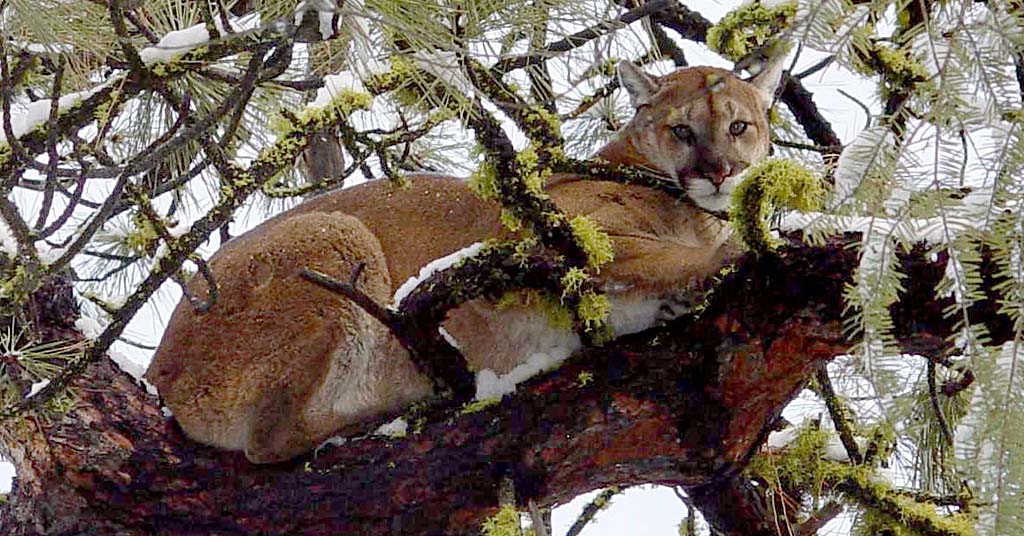
Elusive consensus: In 2024, WDFW approved new cougar hunting rules after pressure from conservation groups who wanted stricter limits on hunts. Photo: WDFW
But conflicts arise when people talk about how the agency and commission should achieve this vision, the report says.
“The changing environmental and social landscape increases the challenges faced by any natural resource management entity,” reads the report. “For example, population growth, environmental degradation, siloed resource management strategies, growing uncertainty related to climate change, forest fires, and the financial cost of implementation of management strategies all contribute to the complexities of sustaining healthy ecosystems.”
Many of the people interviewed see a competitive dichotomy within core elements of WDFW’s mandate to “preserve, protect, and perpetuate fish and wildlife” while also attempting to “maximize hunting and fishing opportunities.”
Although this dichotomy is one of the major sources of conflict, the report does not recommend changing the mandate.
“The present intensity and polarized nature of the public discourse related to fish and wildlife would make any effort to update the mandate politically contentious and would likely exacerbate current tensions among interested parties,” reads the report.
However, it says one element that should be considered is a discussion with Tribes on whether revisions are needed to include tribal-state co-management and an acknowledgement of traditional ecological knowledge in the mandate.
The report offers no suggestions for dealing with problems within the agency other than “creating new strategies to adapt to changing conditions.”
The report does offer some suggestions for the legislature to explore with respect to funding the growing needs of WDFW, including a dedicated sales tax, biodiversity credits that could be purchased by real estate developers, a dedicated general fund for natural resource agencies and across-the-board increases in user fees.
Report requested by enviro groups
The proviso that launched the Ruckelshaus report came at the request of 50 environmental organizations.
The request was sent to the chairs of the Washington Senate Ways & Means Committee and House of Representatives Appropriations Committee on letterhead from Washington Wildlife First. That organization was formed in 2021 to “transform wildlife management to reflect the values of people of the state, respect the intrinsic worth of wildlife, and prioritize the preservation of healthy ecosystems.”
In its April 2023 request to lawmakers, the groups said they believe that “agency change is needed to meet the existential threats posed by habitat loss and degradation, climate change, and the global biodiversity crisis. We fear that even with the increased funding included in your current proposed budgets, the Department’s ability to meet these challenges will be hindered by fundamental structural flaws, and reform may be necessary to meet the goals represented by your proposed budgets.”
The report is part of an $8 million appropriation for fiscal year 2024, and a $15 million appropriation in 2025.
The legislature directed the Ruckelshaus Center to focus on WDFW’s efforts to fulfill its mandate, asking it to look at several issues.
At the top of the list was exploring “the department’s ability to meet threats created by climate change and biodiversity loss.”

Claire Loebs Davis. Photo: Washington Wildlife First
Davis, the Washington Wildlife First founder who supports turning the commission into an advisory body, said she recognizes that the Ruckelshaus Center was given a huge job.
However, she told Columbia Insight, “I’m disappointed by many aspects of the report. I think there’s very limited value in a report that merely reflects opinions.”
Recognizing that the Ruckelshaus Center has no expertise in climate change, she said the recommendations surrounding the climate and biodiversity crises are of limited use.
“This was a chance for there to be some insights to how the department is developing, [and] how the commission is evolving,” she said. “I don’t believe we got that from the report.”
One former member said commissioners listen to the public, ‘But they don’t hear.’
She said the report focuses heavily on the commission—which does its work in the public eye—and offers no insight into how well the department itself is functioning.
“I think what it labels as dysfunction within the commission is actually a good faith attempt to try to accomplish the impossible task that’s been laid before it,” she said. “What we’re seeing now is a commission that has different perspectives, that is not controlled by traditional stakeholders of the department’s hunting, fishing and commercial interests, which has typically been the case.”
Still, even with a more balanced commission, Davis thinks establishing WDFW as a cabinet agency would be more responsive to the democratic process.
“One thing the report didn’t talk about, which is a shame really, is the degree to which the department has become distant from the values of the people of Washington,” she said.
Objectivity in retreat
Kim Thorburn, who served on the commission from 2015 to 2023, says she enjoyed the experience—until the last couple of years, which she described as “miserable.”
From her perspective, the change in the commission was the result of an intentional effort by “animal rights preservationists to try and take over commissions.”
“I’m a birder, not a hunter or angler,” she told Columbia Insight.
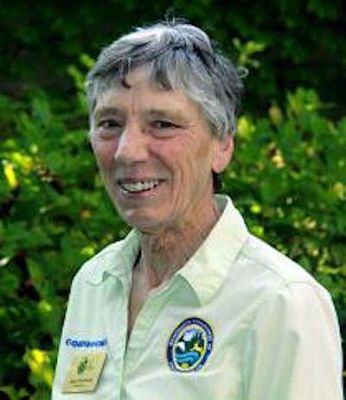
Kim Thorburn. Photo: WDFW
Thorburn said that while she’s interested in honoring the diversity of values across the state, during her last couple of years on the commission that fellow commissioners increasingly began injecting their own values into debates.
“That’s never how I saw my role. I’m supposed to be valuing the fact that there’s diversity out there, and I’m trying to be fair and equitable about distributing it,” she said.
One of Thorburn’s biggest concerns is the appointment process, which she said lacks transparency.
“I think the frustration of almost all the stakeholders—whether they’re landowners, rural communities, hunters, recreational anglers or commercial fisheries—is that their values are just not being included” in the appointment process, she said.
Thorburn acknowledged that commissioners listen to hours of public testimony.
“But they don’t hear,” she said.
As an example of how things have changed, she said that until a few years ago, the method for writing policies was transparent and inclusive. The commission directed staff to work on a new policy, which often included putting together advisory groups with various stakeholders. After numerous meetings the staff would come back to the commission with a draft.
“That’s gone by the wayside,” said Thorburn. “Their idea [now] is, all we have to do is come up with a 5-4 vote. It doesn’t matter what stakeholders are telling us. Sadly, they have an agenda.”
But Commissioner Melanie Rowland, who has served on the commission for three years, said her only agenda is to carry out the commission’s mandate.
She said she’s trying to take a big-picture view of the situation.
She understands that hunters and anglers are fearful of losing their ability to hunt and fish as they once did.
But that’s because climate change and habitat loss from human development are taking a toll on fish and wildlife populations, and the commission is trying to uphold its primary duty, which is to preserve, protect, perpetuate and manage fish and wildlife.
“We are part of the ecosystem, and we can’t stand apart and say, ‘humans will be fine no matter what happens to fish and wildlife.’ Clearly, we are simply shortsighted not to preserve the ecosystems of which we are a part,” she said.
Commissioners respond
WDFW commissioners discussed the Ruckelshaus report at the Dec. 13-14 commission meeting in Cle Elum, when the report was still a draft that had not yet been released to the public.
Commissioner Molly Linville said the job has changed since she accepted the position in 2019.
“The difference, I think, is we used to just work on policy, and now I have to be a subject-matter expert in everything so I can keep up with the conversations,” she said.
To her, the Ruckelshaus report indicates that it’s time to reevaluate what’s being asked of the commission.
Commissioner Lorna Smith said she’s worried that the job is time consuming, which inhibits opportunities for younger people to serve on the commission.
“It does impact our entire lives—what we can do with our families, and our outside activities,” she said.
She asked those critical of the commission to recognize that its members are all dedicated volunteers.
Commissioner John Lehmkuhl pointed out that the report itself notes that it’s not a performance review.
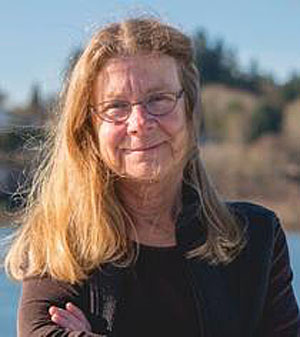
Barbara Baker. Photo: WDFW
“It is simply an opinion survey,” he said. “It’s an opinion. … When you read the report, just remember that.”
Commissioner Jim Anderson said he sees the report as an assessment of what people think about the commission and the department and raises issues and provides pathways for resolving them.
“I do think there’s serious information that has been generated and crystalized and brought forth that moves us to take it very seriously,” he said.
Commission Chair Barbara Baker reminded everyone that the commission has always been steeped in controversy.
“What bothers me about the comments we get from all sides is there’s this embedded nostalgia about the good old days,” she said.
But in her time on the commission, she said there have always been disputes.
“We had to abolish advisory groups for the Willapa because we didn’t have the enforcement to control the fights—literal fights. We had people wearing bulletproof vests to commission meetings,” she said, referring to tensions around policies governing the salmon fishery in Willapa Bay.
Before that, said Baker, there were disputes over wolves, and before that, over hound hunting.
She concluded her remarks with an allusion to recent public rancor that has contributed to the idea that the commission is a dysfunctional entity in need of major changes.
“Tell us about what’s wrong with the science or what’s wrong with the policy we developed,” she said. “Don’t tell us what’s wrong with each of us individually. That is completely disrespectful.”

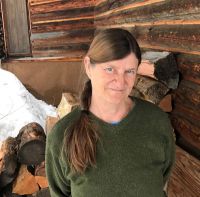

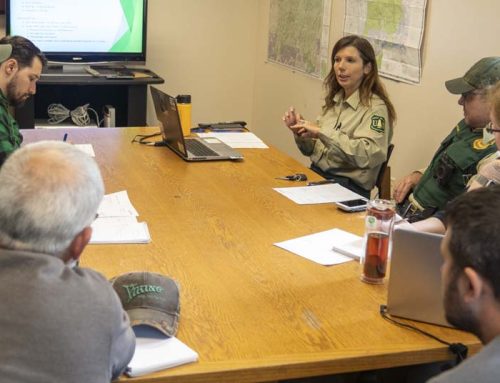

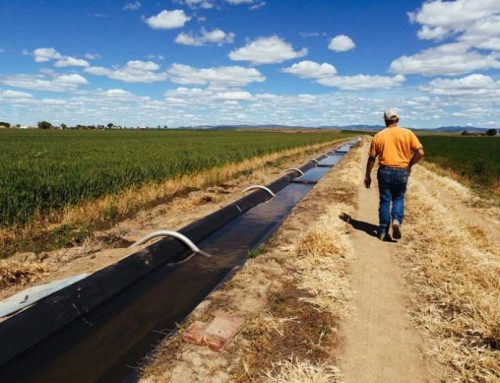

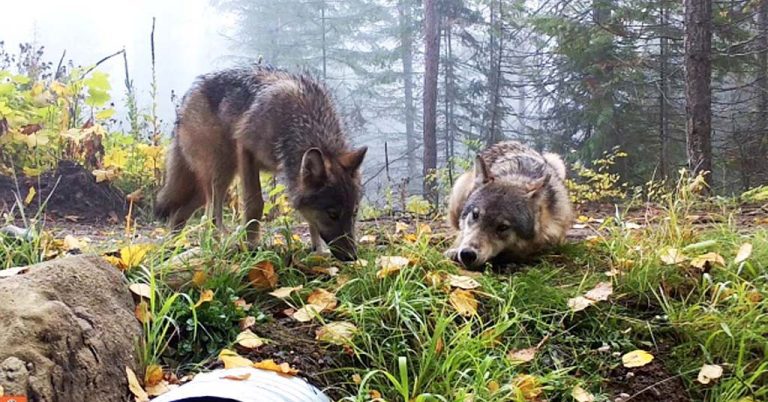
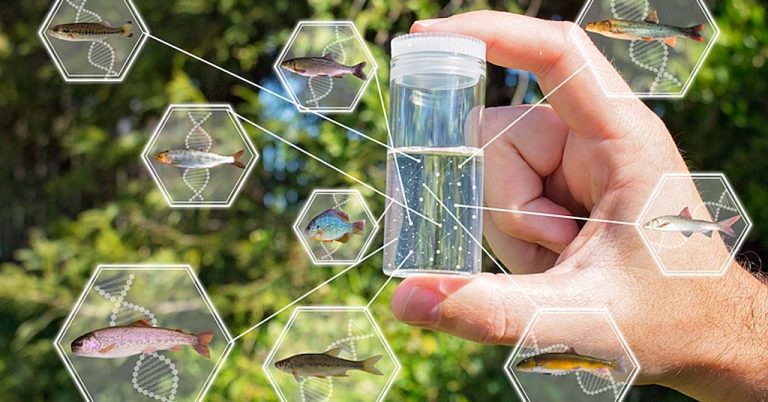



This is an important and robust discussion. Columbia Insight exists, in part, as a forum for the exchange of ideas about how best to manage the environment. We also take pride in the fact that the vast majority of people in the CI community engage in debates in the spirit of respect and civility. We have a strict policy against personal insult, profanity, intentional rancor, etc., and are never shy about applying it as needed. As the editor of Columbia Insight, I’d like to thank everyone who posts thoughtful comments on our site and offer a reminder that this can and should be a respectful and civil debate. Easy labels often obscure the truth about people and their points of view, leading to an unhelpful Us-vs.-Idiots mentality. Fact is, many hunters, fishers and “extremists” are, in fact, also environmentalists. And many so-called environmentalists and “disgusting preservationists” are themselves hunters and fishers, or at least grew up with or reside in pro-hunting and fishing communities and, even if they are not hunters themselves, respect the rights, privileges and motives of those who do hunt and fish. Before posting a comment, please re-read the first sentence of this story and consider solutions before slander. They are within our reach. —Editor
The folks who label the Commission dysfunctional are being way to kind. There were no good old days, and there will not be a future for those who believe they can have it both ways. Certainly they can have it both ways, but, unfortunately, their “share of zero” is still zero.
To those who think that my thoughts, and the thoughts of the very few people who were part of the original environmental movement that are left, are ‘crazy’? Consider this, the damage done to this planet is not reparable. You might be the folks that fit the technical definition of ‘crazy’. Which includes the definition of being, as the writer reported, tone deaf. They listen but they don’t hear. Bob Songer Q.E.D.
the statement that the commission is working to protect fish and wildlife is totally a lie
When your priority is protecting predators you should never be in charge of a wildlife commission.The safest animals in Washington are the predators (sea lions,cougars,wolves and bears) and the damage they cause to fish and wildlife is out of control. If you think I’m wrong just look at the damage the sea lions are doing to the sturgeon on the lower Columbia river. It’s heartbreaking to see these fish being killed by seals and sea lions in large numbers and nothing is being done by the commissioners.
I would totally agree. The commission manages for the dollar, not for the wildlife.
At first glance, this sounds great.
But giving appointment power to the Governor of Washington, that would be a disaster.
Every thing that they touch turns to ? and costs us more. There’s definitely climate scare and diversity going to be woven in more.
When you read things like “existential threat”, stake holders and biodiversity watch out.
It is sad that the commission is self interested and un willing to listen to the people
I love how environmentalists make negative correlations without supporting them in fact! fact, the human population in Washington state has increased by more than 700% in the last 100 years. Fact, the The average salmon run has increased by more than 100% in the last hundred years! Fact, The population of all game animals in the United States have increased over the last hundred years, so making a correlation between human population/ habitat, and game animal population doesn’t exactly math!
Appointment power to the Governor would be more than a disaster. Given the anti gun, anti hunting direction of the governor. It is unfortunate that the true stewards of the land have no input or way anymore. We have a lot of input and decision making that is way to political or driven by the dollar. The wildlife and future generations are the ones that will pay the price
I am curious where you got the statistic about salmon runs increasing by 100% since 1923.
I’m with Joan Chantier: What’s the evidence salmon runs have increased 100%. What I read and hear is the opposite.
Giving the governor more power in the commission is a disaster waiting to happen. Until we can get people who actually have held hunting and fishing licenses under their name in the commission, which should be a minimum requirement of say, 10 years in the state of Washington Were doomed. The article called it out. First, It was hound hunting. That made the predator stay in the woods, they didn’t hear a bark as food but fear, as they should. Then it was wolves, still is wolves. Is absolutely killing our forests, and it’s not just deer and elk. It’s the grouse. It’s the turkeys. It’s the moose, especially, the squirrels the rabbits. Every living thing gets destroyed in their path. Now the cougar quota, the scientist and WDFW told the commission to increase bear and cougar tags and they reduced them and eliminated a season, instead. Disgusting preservationists. Shame.
Notice the commenters are living in their extremist hunter bubble. Your opinions are those of less than 10% of Americans.
Yes, but we are the ones using the land for fishing and hunting. We speak the truth. We are out there on the land and the rivers seeing the destruction, lack of fish to catch, and rivers closed for most of the year, no bait, no scent, ridiculous rules designed to prevent too many fish from being caught due to their mismanagement of the resources we live here to enjoy. It is time for reform and overhauling of the commission and keeping the leftists and environmental activists limited to what they can prove scientifically.
May God help us all!
Pray for your enemies ?
Love and protect our wildlife for there a blessing to us all to share however we view it!
Blessings to all and to all a good night
77 years of hunting, fishing and raising livestock in Washington State have taught me that our FWG has been destroying what was once a fantastic collection of fisheries and game. Looking back over the years my family has worked and played in WA state, I only see less. My section of NE WA has been over fished, over hunted and so poorly managed, my grandchildren have nothing in comparison to what we had. I am sad.
I am a pretty big activist for Hunter rights, and have been in the fight for a long time. I do not support dissolving the commission. When it works, the commission works for everyone and wildlife. But the car and direction is not sustainable. Now more than ever our heritage is in danger of being taken away. The commission refuses to hear their actual stakeholders. Hunters and anglers, agricultural stakeholders, and others. The commission doesn’t consult the tribes, and is often pretty insulting.
The commission would rather listen to people in Seattle limits, who quite frankly don’t have as big of a say about the rest of the state. They already have a big enough say. Giving one person the power of our wildlife in public lands is not ideal. I would be saying that whether that person is a Hunter or not. I would like to thank Columbia insight for covering the issue. But under this commission, we have lost so much. Hunters are insulted, and enviros and commission talk a lot of crap about not just hunters, but rural folk. We’ve already lost a ton, and we don’t want to lose anymore. I agree that reform needs to be made to the commission. I have several ideas on how to do that that gives everyone a place. But dissolving the commission, and the current direction of the commission isn’t helping anyone. I truly believe that the enviros, and the people running the shell want to ban hunting and fishing.
I’m with you, Dane. And I’m a graduate/ survivor of WDG,WDW and WDDFW. You pretty much nailed it. I have given up hunting and nearly given up fishing inWashington in disgust over the systematic mismanagement of our natural resources by people who spend their lives on pavement.